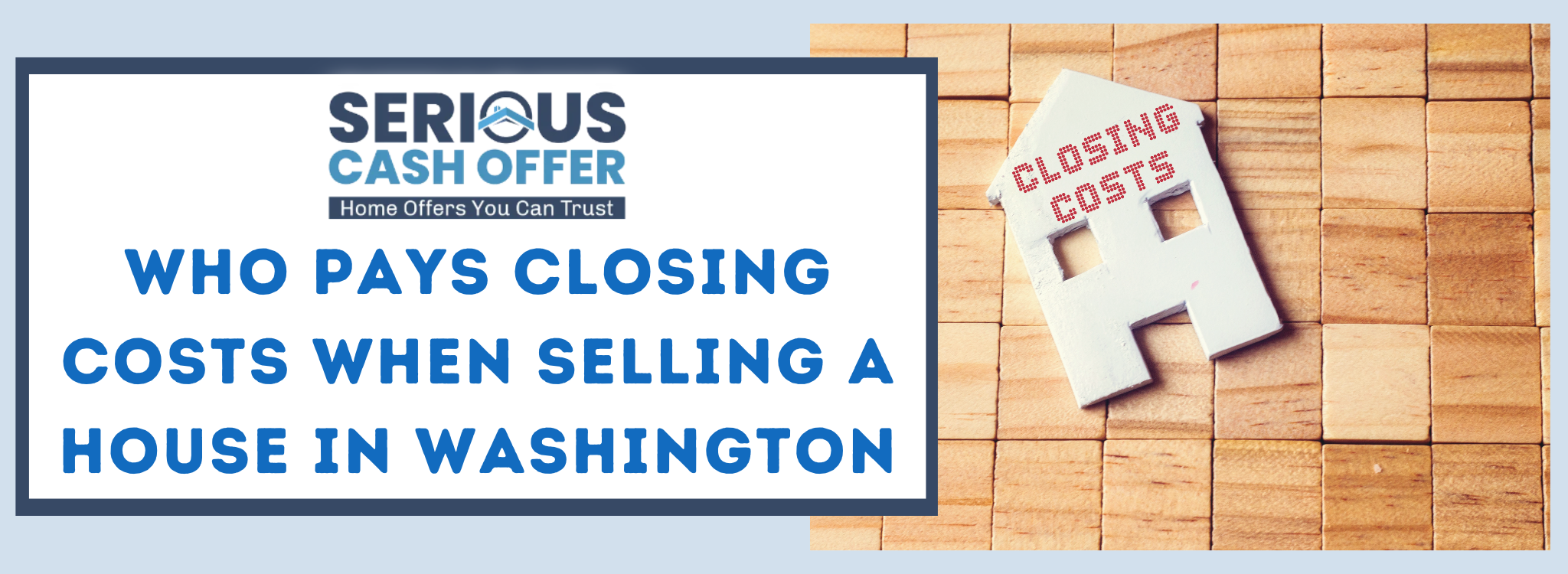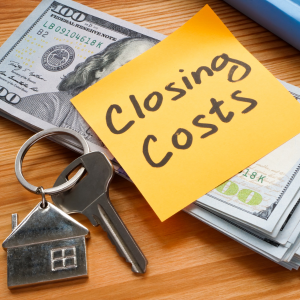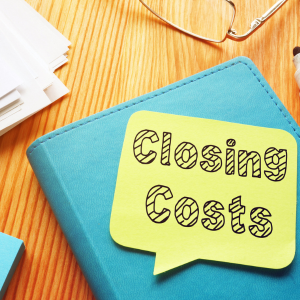
Defining Closing Costs in Washington
The closing costs of a real estate transaction are fees and expenses. Knowing these factors helps Washington sellers control house sale costs. Real estate transaction fees and other closing costs are standard for sellers. Property location and sale price affect Washington closing expenses.

What are Typical Closing Costs for Sellers?
The seller’s closing costs usually include several real estate deal costs. Here is a list of typical expenses that buyers may have to pay:
- Home Buyer Commissions: These cover real estate professionals’ services and are typically the most significant seller cost.
- Title Insurance: This protects both buyer and seller by confirming the title is free of liens or disputes.
- Escrow Fees: Charges for escrow services that hold funds until the transaction is final.
- Recording Fees: Costs to record the new deed with local authorities.
- Settlement Charges: Additional fees may include attorney or notary services.
Knowing these typical costs helps sellers prepare financially and negotiate effectively during the sale.
Which Fees are Mandatory in Washington State?
In Washington, sellers must pay specific fees when selling property. These include:
- Transfer Taxes in Washington: A tax on transferring property ownership.
- Recording Fees: Indispensable for formally recording the ownership change at the county recorder’s office.
- Settlement Charges: Include various administrative fees needed to process the transaction.
- Legal Fees for Sellers: Costs for legal advice or document preparation.
- Cost of Title Insurance: An insurance premium that guards against post-sale title disputes.
- Escrow Fees: Paid to the escrow company managing the transaction funds securely.
These fees comply with state laws and ensure a smooth transaction.
How do Closing Costs Differ Between Buyers and Sellers?
Buyers and sellers share closing fees. Buyers and sellers can negotiate this. How they differ:
- Buyer Closing Costs: Usually cover loan fees, appraisal fees, and home inspection costs.
- Seller Closing Costs include title services, home buyer commissions, and legal fees.
- Allocation of Closing Costs: Negotiations can change who pays for which fees, affecting each party’s total costs.
- Closing Cost Negotiation: To sweeten the transaction, sellers may offer concessions, such as covering a portion of the buyer’s closing fees.
- Seller Concessions: Agreed terms may require sellers to pay certain buyer expenses to help facilitate the transaction.
- Who Pays Escrow and Title Fees: Often shared or decided through negotiation; it varies by local customs and specific agreements.
Understanding closing cost responsibilities helps buyers and sellers plan and avoid unexpected costs.
This information will help you better grasp Washington’s closing expenses. Knowing these costs will enable you to choose whether to buy or sell a house. See a professional or use the free calculators for specific calculations and comprehensive guidance.
Factors Influencing Closing Costs
How does location affect closing fees in Washington?
Closing costs in Washington state can vary substantially by location. Local real estate customs are crucial in setting these costs. For example, real estate transaction fees in urban communities may differ from those in rural locations. This distinction is partly due to changes in transfer taxes and other local levies that may apply.

- Average Closing Costs: Closing costs in Washington typically range from 2% to 5% of the home’s purchase price. However, these can change based on specific neighborhood practices and local rules.
- Transfer Taxes: Washington doesn’t have a state-level transfer tax, but some local authorities might charge fees or taxes when selling properties.
Understanding these aspects helps home buyers and sellers prepare to negotiate or plan for closing costs.
Are home condition and appraisal linked to higher costs?
Yes, the condition of a home and its valuation are associated with prospective increases in home sale costs.
- Appraisal Fees: Homes that often need detailed appraisals have higher fees. An appraiser evaluates a home’s value based on its condition, comparable sales, and market trends.
- Home Inspection Costs: A thorough inspection is crucial to check the home’s condition before a final sale. If inspectors find issues, sellers may need to make extra pre-sale home repairs, raising overall expenses.
- Impact of Home Condition: Homes in excellent condition may need fewer repairs, while those needing more work might require additional spending, which can affect closing costs.
Understanding these factors can help both buyers and sellers make smart financial choices.
Does the time of year impact closing expenses?
The timing of a sale can affect both seller and buyer closing costs, and it is heavily influenced by seasonal market trends.
- Seasonal Market Trends: The housing market changes throughout the year. High demand can raise prices in spring and summer and possibly increase closing costs. However, there might be more opportunities to negotiate and reduce expenses in fall and winter.
- Negotiation of Closing Costs: Buyers tend to have more negotiating power during slower market times, which can lower closing expenses.
Knowing how the time of year influences the housing market helps plan property transactions for the best financial results.
Who Covers Specific Fees in Washington Real Estate?
What determines if a seller pays for title insurance?
In Washington State real estate transactions, the buyer and seller’s agreement determines who pays for title insurance.

- Title Insurance guards against potential defects or claims on the property’s title.
- Seller Closing Costs: Commonly, sellers in Washington pay for title insurance, but it’s not required.
- Real Estate Transaction Fees: The purchase agreement usually determines how these fees are split. Sellers might cover them to attract buyers.
- Who Pays Title Fees: In a competitive market, sellers may offer to cover title fees to incentivize buyers.
Are escrow fees typically a buyer’s responsibility?
The buyer and seller often negotiate who pays escrow fees, though they are typically part of the buyer’s closing costs.
- Escrow Fees: These fees are associated with managing the escrow account, which is responsible for preserving funds during the transaction.
- Buyer Closing Costs: Usually include escrow fees, which can be substantial.
- Who Pays Escrow: Buyers generally cover these fees, but both parties can negotiate terms.
- Real Estate Transaction Fees: Knowing these fees helps in negotiating effective deals.
Can seller concessions cover closing costs?
Seller concessions can help manage closing costs in Washington State real estate deals.
- Seller Concessions: The seller agrees to cover these expenses for the buyer, lowering the buyer’s upfront costs.
- Closing Costs in Washington State: Include appraisal, inspection, and loan origination fees. Seller concessions can help offset these costs.
- Negotiation of Closing Costs: Buyers can request seller concessions, potentially sharing or covering certain costs.
- Allocation of Closing Costs: Ultimately, this is decided through negotiation, influenced by market conditions and personal needs.
Understanding these aspects lets buyers and sellers make informed decisions about real estate in Washington. For more insights, explore resources from Serious Cash Offer.
Strategies to Reduce Closing Costs
Are there negotiation strategies for closing fees?
Negotiating closing costs can help reduce expenses when finalizing a mortgage. Here are some simple ways to deal with this:

- Negotiation of Closing Costs: Talk with your lender about possible fee reductions, like application or origination fees.
- How to Calculate Closing Costs: Use a closing cost calculator to estimate expenses and prepare for negotiations.
- Common Closing Cost Distribution: Learn which costs are typically covered by buyers and sellers to spot negotiation opportunities.
- Seller Concessions: Ask for seller concessions where the seller pays for some closing costs.
- Allocation of Closing Costs: During negotiations, the parties should agree on dividing the closing costs.
Can choosing specific service providers lower costs?
Choosing the right service providers can significantly save on closing costs:
- Service Providers: Compare prices from different providers for essential services.
- Title Insurance: Shop for affordable title insurance since fees vary widely between companies.
- Escrow Fees: Contact multiple escrow service providers to find the best price.
- Real Estate Professional Commission Split: Negotiate commission splits with your real estate professional, as some may offer flexibility.
- Closing Cost Negotiation Strategies: Request an itemized breakdown of fees to identify potential savings.
Is it possible to roll closing costs into the mortgage?
You might be able to include closing costs in your mortgage, depending on the loan type:
- Rolling Closing Costs: Some lenders let you add closing costs to your mortgage, reducing upfront payments but increasing the interest paid over time.
- Mortgage Loan: Ask your lender if rolling closing costs into the mortgage is possible and check how it affects monthly payments.
- FHA Loan Closing Costs: With FHA loans, you might be able to include closing costs, subject to lender policies.
- VA Loan Closing Costs: VA loans may limit what closing costs veterans pay, allowing for more straightforward inclusion in the loan.
- Conventional Loan Closing Costs: Discuss with your lender the possibility of incorporating closing costs into traditional loans.
- Prepaid Interest: Including closing costs could affect prepaid interest, so consider the long-term financial impact.
Legal Requirements and Considerations
What legal documents are needed for closing in Washington?
In Washington, a real estate closing requires several important legal documents:

- Closing Disclosure Statement: Details the loan terms, monthly payments, and fees.
- Deed Preparation Costs: The deed shows ownership, and costs vary based on complexity.
- Legal Fees for Sellers: Covers the seller’s attorney costs for document review and compliance with laws.
- Real Estate Transaction Fees: Includes commissions and administrative charges related to the transaction.
- Recording Fees: Paid to the local government to officially record the deed and other documents.
- Notary Fees: Arise when notarizing documents to confirm their legality.
Understanding these documents and fees is key to a smooth transaction process.
How do state taxes influence closing costs?
State taxes have a significant impact on closing costs in Washington:
- Transfer Taxes in Washington: Paid during a property ownership change, affecting final costs for buyers and sellers.
- Prorated Property Taxes: Depending on the closing date, the buyer and seller might split the current property taxes.
- Seller’s Net Proceeds: Knowing tax implications helps sellers calculate net profits after deductions.
- Allocation of Closing Costs: Proper distribution between the buyer and seller avoids disputes and ensures clarity.
- Settlement Charges: Comprise various state-mandated taxes and fees that add to closing costs.
Being aware of these taxes helps with financial planning and negotiation.
Why is understanding local regulations critical?
Knowing local regulations and practices in Washington can significantly affect the closing process:
- Local Real Estate Customs: Different areas may have unique practices influencing timelines and responsibilities.
- Common Closing Cost Distribution: Understanding typical cost divisions aids negotiations and expectations.
- Negotiation of Closing Costs: Familiarity with local norms supports effective negotiation on who pays specific fees.
- Who Pays Title Fees & Escrow: Clarity on responsibilities can prevent misunderstandings regarding title insurance and escrow management.
Understanding these local aspects leads to compliance and a smoother transaction experience.
For more insights on navigating the real estate market in Washington, explore resources from Serious Cash Offer.
FAQs:
Who typically pays the closing costs when selling a house in Washington?
Washington buyers and sellers divide closing costs. Buyers typically pay lenders, prepayment interest, and escrow fees. Sellers may pay transfer taxes and deed preparation.

What average closing costs should I expect when selling a home in Washington?
Sellers in Washington often pay closing costs between 6% and 10% of the home’s sale price. These can include fees for title insurance, deed transfers, and possibly credits toward buyer closing costs.
Are there programs that assist with closing costs in Washington?
Yes, several programs help with closing costs, especially for first-time homebuyers. These programs may cover expenses like earnest money deposits or offer grants.
How do closing costs differ for different types of loans in Washington?
It depends on the type of loan you have. The costs are usually cheaper since a VA loan has no down payment. On the other hand, FHA loans may have upfront mortgage insurance premiums. There are also different fees for conventional loans.
Can closing costs be negotiated when selling a house in Washington?
Yes, closing costs can be negotiated. Sellers might offer credits to buyers as an incentive, especially in a buyer’s market.

What additional expenses should sellers anticipate besides closing costs?
Sellers should budget for pre-sale home repairs, staging costs, marketing fees, moving costs, and closing costs.
Are there tax implications for seller closing costs in Washington?
Some closing costs, like prorated property taxes and mortgage interest, could be tax-deductible. It’s best to consult a tax professional for advice.
What strategies can help reduce closing costs when selling a home?
Depending on market conditions, sellers can negotiate with buyers, agree on buyer-paid fees, or offer seller credits in exchange for a higher purchase price to reduce closing costs.
Key Insights
- In Washington, fees for escrow, title insurance, and city transfer taxes are usually part of the closing costs for a house. Both buyers and sellers may be able to agree to split these costs.
- When selling a house in Washington, sellers typically pay commission fees, part of the escrow fees, and any outstanding liens or property taxes as part of the closing fees.
- Buyers usually cover mortgage payoff costs, appraisal fees, and the closing disclosure statement that itemizes all transaction-related expenses.
- The responsibility for closing costs when selling a house in Washington can vary. These costs are often negotiated, with sellers sometimes providing credits toward the buyer’s expenses.
- Washington’s Average closing costs range from 1% to 3% of the home’s sale price. First-time buyers might encounter different fees depending on loan types, such as FHA or VA loans.
- Closing cost negotiation strategies often include earnest money deposits and seller contributions to help ensure a smoother transaction.
- Depending on the terms agreed upon in Washington, utility transfer costs and due diligence fees may be the buyer’s responsibility.
- Closing cost assistance programs can reduce buyers’ out-of-pocket expenses, which is especially important in a buyer’s market where competitive offers matter.
- Understanding who pays escrow and other fees is crucial; sellers and buyers should clarify their responsibilities to prevent disputes at closing.
- The seller’s net proceeds are calculated after deducting all applicable closing fees, providing transparency in the financial outcome of the sale.
These details apply to the entire state of Washington State, including cities like Spokane, Tacoma, Longview, Seattle, and Seatac, as well as their surrounding areas. If you require extra assistance or have particular inquiries, please contact us at (206) 312-1920. Please see our website, Serious Cash Offer, for more information and complete descriptions of our services.


